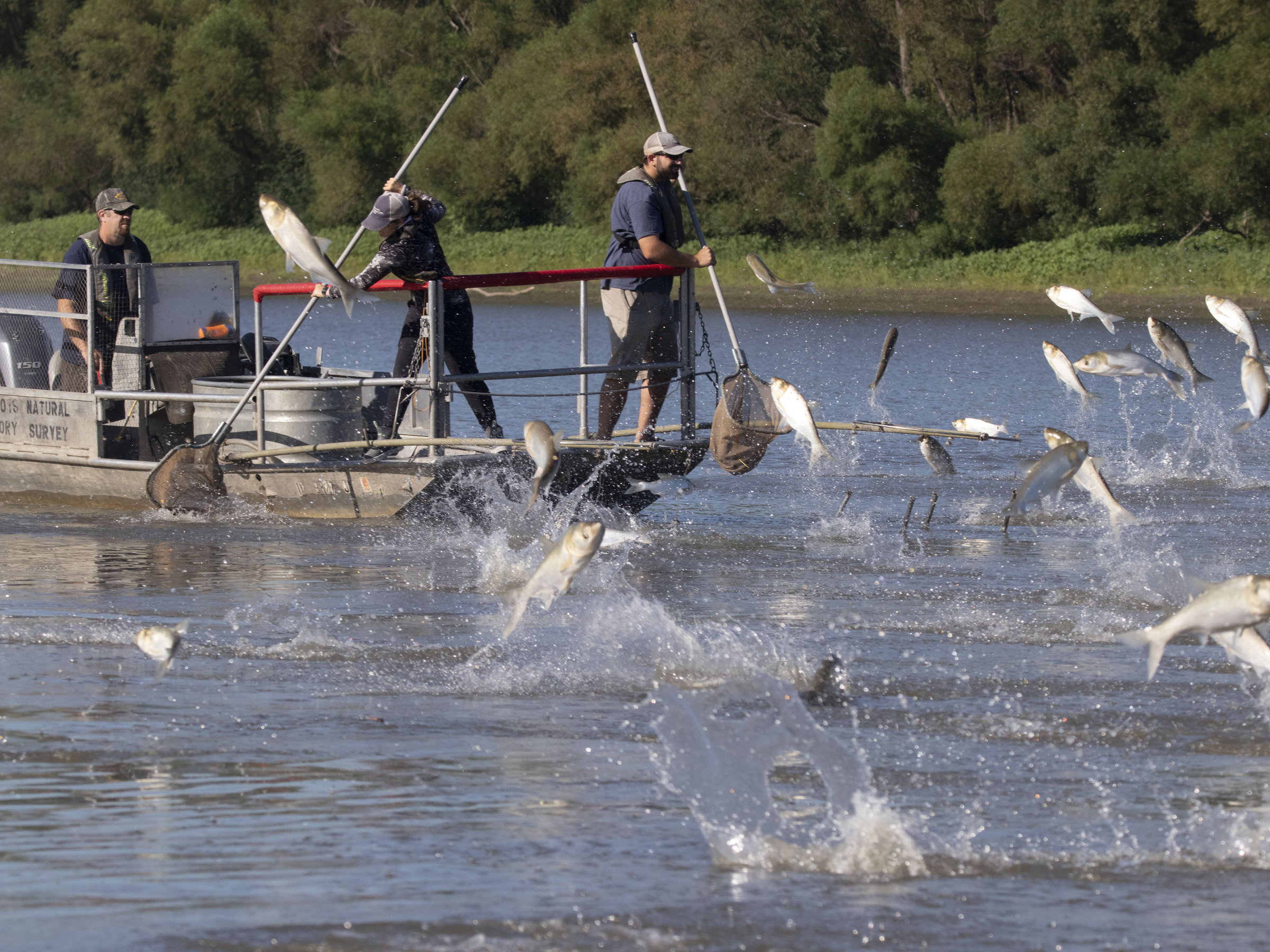Zebra Mussels popped up in the Great Lakes more than 25 years ago, and since then a lot has changed about the way officials deal with them and other invasive species. Our guest looks at the history and management strategies for invasive species in Wisconsin. We also talk to the leader of the state’s taskforce on Alzheimer’s and Dementia, and cover an important news story.
Featured in this Show
-
Outreach Efforts Stabilize Spread Of Zebra Mussels
The spread of zebra mussels and other aquatic invasive species throughout the Great Lakes has stabilized in the last half decade, thanks in large part to the state’s outreach efforts, according to an environmental researcher.
“That doesn’t sound like really exciting news, but that’s actually a good reflection of our outreach efforts because if we did nothing, the rate of spread would dramatically increase over time,” Tim Campbell said, an aquatic researcher with the UW-Extension Environmental Resources Center.
It’s been more than 25 years since zebra mussels were first detected in the Great Lakes, Campbell said. Along with Asian carp, the mussels quickly became the poster child of invasive species in Wisconsin because of their widespread impact on water ecology and lake recreation.
The small, D-shaped clams, typically yellow or brown with alternating stripes, came into the U.S. by large, oceanic shipping vessels leaving eastern Europe and western Asia. Once the mussels arrived, recreational boaters quickly spread them to a number of lakes across the state.
Wisconsin began developing an aquatic invasive species management plan in 2002. Campbell now leads an effort to revise the plan. He said prevention is the best tactic in fighting back.
“We can do some things once invasive species get here,” Campbell said. “There are control options available, but they’re really expensive and eradicating a species is difficult and expensive. (Prevention) is how I think we’ve been leaders in managing aquatic invasive species here in Wisconsin.”
One of the hallmark programs of the state’s prevention efforts has been the Clean Boats, Clean Waters outreach initiative that stations volunteers and paid staff at boat launches for boat and trailer checks, as well as hand out educational materials.
Inspectors checked more than 6,200 boats in 2004 when the initiative originally launched, rising to more than 133,880 boats in 2015, according to the Wisconsin Department of Natural Resources
With boating season upon us, Campbell encourages people to take steps to make sure zebra mussels and other aquatic invasive species don’t spread to new waters. The WDNR offers the following steps for boaters:
- Inspect and remove aquatic plants, animals, and mud from your boat, trailer, and equipment.
- Drain all water from your motor, livewell, bilge, transom, etc.
- Dispose of unused bait in the trash.
- Wash your boat and equipment with hot and/or high pressure water, particularly if moored for more than one day, OR
- Dry your boat and equipment thoroughly (in the sun) for five days.
-
Wisconsin Needs More Health Care Workers For Aging Population
As the population in the U.S. ages, additional health care workers are vital to supporting the growing number of people with Alzheimer’s and dementia, according to a report released earlier this week.
Alzheimer’s and dementia rates continue to rise, putting Wisconsin on path to double the more than 110,000 people affected by the disease in the next 10 to 15 years, according to the report released by Rep. Mike Rohrkaste, R-Neenah, chair of the Speaker’s Task Force on Alzheimer’s and Dementia.
Alzheimer’s and dementia are the sixth-leading cause of death in Wisconsin and the only top 10 cause with growing rates, the report said.
The diseases continues to increase in the state for a couple of reasons, Rohrkaste said.
“You have a large population of baby boomers who are getting older, and age is where it starts to show up more,” Rohrkaste said. “We are living longer as well.”
The task force identified two main areas of needed improvement: greater respite care services and resources for those in a crisis situation.
“Probably the biggest area is a shortage of really all health care workers, but in particular caregivers, from in-home care workers to CNAs, to nurses,” he said.
To increase participation, supporting early education opportunities and increasing pay for caregivers are methods to interest young people in a career in the health care field, Rohrkaste said.
-
State Task Force On Alzheimer's And Dementia Release Final Report
This week, the Speaker’s Task Force on Alzheimer’s and Dementia released their latest findings of how best Wisconsin can address the growing number of cases of these degenerative diseases in the state. Representative Mike Rohrkaste (R-Neenah) serves as the Chair of that task force and joins us to talk about the results.
-
The History Of Zebra Mussels In The Great Lakes And Wisconsin's Approach To Invasive Species
Twenty six years ago Zebra Mussels were found in the Great Lakes, and state scientists are still trying to manage the invasive species. Our guest looks at the history of the animal, and Wisconsin’s approach to all types of invasive species.
Episode Credits
- Judith Siers-Poisson Host
- Veronica Rueckert Host
- Matt Oleson Producer
- Amanda Magnus Producer
- Mike Rohrkaste Guest
Wisconsin Public Radio, © Copyright 2024, Board of Regents of the University of Wisconsin System and Wisconsin Educational Communications Board.


